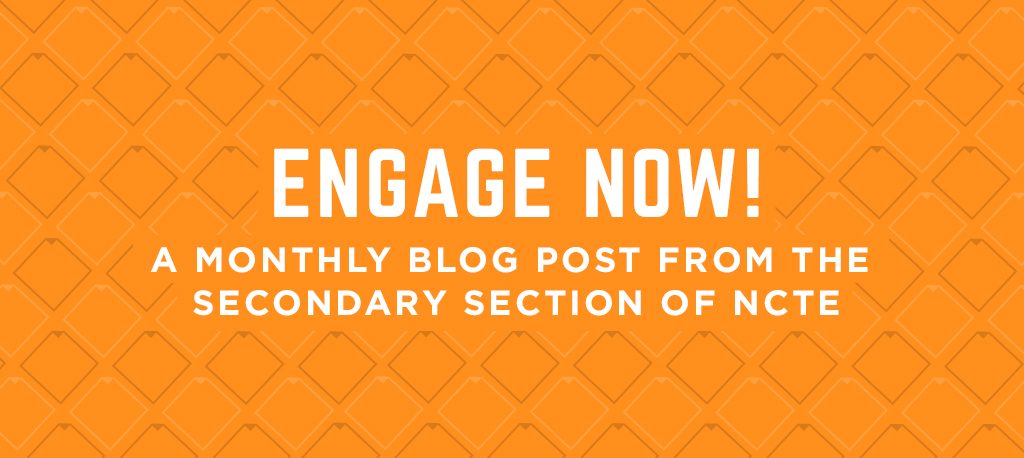Greetings from the Secondary Section Steering Committee!
My name is Tiffany Rehbein, and I am honored to serve as your current Secondary Section Steering Committee Chair.
As the elected leadership of NCTE’s Secondary Section, your Steering Committee’s mission is to enhance “the professional lives of secondary English language arts educators and the quality of education of their students by providing multiple forums for significant dialogue on historical, current, and emerging topics of interest to secondary English language arts educators.”
This year’s Annual Convention theme is Spirited Inquiry. In the Call for Proposals, Leah Zuidema, program chair, asks us to “dare to wonder, to be bold and creative in our curiosity.” As such, we are delighted to share with you Engage Now!, the Secondary Section’s home for ongoing communication, collaboration, and celebration of all the ways in which we inquire.
Through Engage Now!, members can share insights, lesson plans, and other ideas around current practices important to secondary teachers.
You hold the wit and wisdom behind the complexities of our profession. Engage Now! is one way to get involved. Submit proposals to present at Annual Convention. Publish an article in English Journal. Judge an award. Run for an elected office. Attend the Annual Convention. Become active at your local level. Consider all the ways that you might dare to serve.
Being Bold Enough to Dare with You,
Tiffany Rehbein, Secondary Section Steering Committee Chair
@Rehb31
Meet Your Secondary Section Steering Committee (alphabetical)
Joshua Cabat

Josh Cabat is currently serving as Chair of English for the Roslyn (NY) Public Schools. For the preceding decade, he taught English and Film Studies at Roslyn High School in Roslyn, New York. Previously, he taught in the New York City public high schools for over a decade. He was the co-founder of the New York City Student Shakespeare Festival, and has been awarded three fellowships by the National Endowment for the Humanities. He has been a featured speaker at many national conferences, and has published many articles on Shakespeare and Film in publications such as the English Journal. He is a founding member of the Folger Shakespeare Library National Teacher Corps, and was for a decade the Teaching Artist for the Young Film Critics program at the Brooklyn Academy of Music. He is a guest lecturer on Shakespeare at SUNY Stony Brook and a creator of Vintage Sand, a film history podcast. He earned an MA from the University of Chicago and a BA from Columbia University.
Katie Ford
 Katie Ford teaches at West Forsyth High School in Cumming, GA. She believes that an inquiry stance promotes students and teachers exploring, questioning, and learning together.
Katie Ford teaches at West Forsyth High School in Cumming, GA. She believes that an inquiry stance promotes students and teachers exploring, questioning, and learning together.
Keisha L. Green
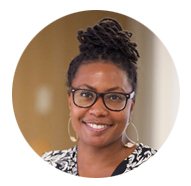 Keisha L. Green earned her PhD in Educational Studies at Emory University where she specialized in literacy, language, and culture.
Keisha L. Green earned her PhD in Educational Studies at Emory University where she specialized in literacy, language, and culture.
Later she was a Presidential Postdoctoral Fellow at Rutgers University in the Graduate School of Education. In 2013, Keisha joined the College of Education faculty at the University of Massachusetts Amherst as an Assistant Professor of Secondary English Education in the Department of Teacher Education and Curriculum Studies. Her scholarly interests are in English Education, youth literacy practices across school, home, and community contexts, critical literacy and critical pedagogy. Keisha is published in Equity & Excellence in Education and Race, Ethnicity, and Education. She has also authored chapters in three edited volumes: Reading African American Experiences in the Obama Era: Theory, Advocacy, Activism; Humanizing Research: Decolonizing Qualitative Inquiry With Youth and Communities; and Youth Voices, Public Spaces, and Civic Engagement. Keisha has been a member of NCTE for about a decade, is a former 2008-2010 NCTE Cultivating New Voices among Scholars of Color fellow, has served on the Standing Committee on Research (2014-2017), and was the chair for the CEE Nominating Committee (2015-2016). Additionally, she serves on the Board of the Western Massachusetts Writing Project.
Amanda Palmer
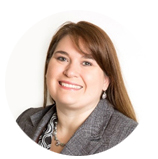 Amanda Palmer began her career as a high school English teacher and later transitioned to the role of campus instructional coach. Currently, she serves as a secondary language arts coordinator in Katy Independent School District in Katy, Texas. She has been recognized by ASCD as a 2015 Emerging Leader and works with her NCTE state affiliate, the Texas Council of Teachers of English Language Arts, as the Vice President for Memberships and Affiliates.
Amanda Palmer began her career as a high school English teacher and later transitioned to the role of campus instructional coach. Currently, she serves as a secondary language arts coordinator in Katy Independent School District in Katy, Texas. She has been recognized by ASCD as a 2015 Emerging Leader and works with her NCTE state affiliate, the Texas Council of Teachers of English Language Arts, as the Vice President for Memberships and Affiliates.
Tiffany Rehbein
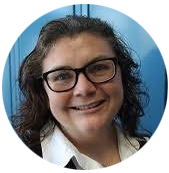 Tiffany L. Rehbein (Chair) is the K-12 English Language Arts District Coordinator in Laramie County School District #1 in Cheyenne, Wyoming. Prior to that, she taught high school English for 13 years. Tiffany is President of the Wyoming English Language Arts Council, the NCTE state affiliate, and serves on the Leadership Team for WyoWrites (formerly the Wyoming Writing Project). She is in her third year teaching a district course to secondary teachers, focusing on reading and writing strategies. Tiffany is a recipient of the 2008 NCTE Leadership Development Award and formerly served on the LGBTQ Advisory Committee for NCTE.
Tiffany L. Rehbein (Chair) is the K-12 English Language Arts District Coordinator in Laramie County School District #1 in Cheyenne, Wyoming. Prior to that, she taught high school English for 13 years. Tiffany is President of the Wyoming English Language Arts Council, the NCTE state affiliate, and serves on the Leadership Team for WyoWrites (formerly the Wyoming Writing Project). She is in her third year teaching a district course to secondary teachers, focusing on reading and writing strategies. Tiffany is a recipient of the 2008 NCTE Leadership Development Award and formerly served on the LGBTQ Advisory Committee for NCTE.
Shekema Silveri
 Shekema Silveri is the founder of IFE Academy of Teaching & Technology, a blended and personalized K–12 homeschool collaborative in Atlanta, GA. With more than 12 years of classroom teaching experience, Shekema’s passion is exploring the reach of virtual learning as a means to bridge the digital divide, which resulted in being featured on CNN’s Perry’s Principles. She is an NCTE Early Career Leader of Color Award recipient (2008), an award fr which she continues to serve as mentor.
Shekema Silveri is the founder of IFE Academy of Teaching & Technology, a blended and personalized K–12 homeschool collaborative in Atlanta, GA. With more than 12 years of classroom teaching experience, Shekema’s passion is exploring the reach of virtual learning as a means to bridge the digital divide, which resulted in being featured on CNN’s Perry’s Principles. She is an NCTE Early Career Leader of Color Award recipient (2008), an award fr which she continues to serve as mentor.
Shekema is a former OER Commons Fellow (2010), Georgia National Milken Educator (2011), and a member of NAEP’s 12th Grade Writing Level Setting Panel (2011). Her work has been published in The New York Times, Huffington Post, and ASCD’s InService.
Juli Stricklan
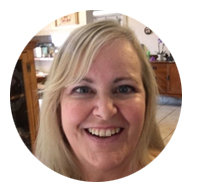 Juli Stricklan has been teaching secondary English for 20 years — the first 15 years were in Idaho, and the past five have been in New Mexico. She has been involved in local Education Associations, the JEA, and NCTE for all of her years as a teacher. She teaches both AP and standard English classes, has taught night school and summer school, and will continue to work to support students and teachers through service on the Secondary Section Steering Committee. She has five grown children, nine grandchildren, and enjoys watching baseball and reading YA fiction. She lives in New Mexico with her husband & several dust bunnies.
Juli Stricklan has been teaching secondary English for 20 years — the first 15 years were in Idaho, and the past five have been in New Mexico. She has been involved in local Education Associations, the JEA, and NCTE for all of her years as a teacher. She teaches both AP and standard English classes, has taught night school and summer school, and will continue to work to support students and teachers through service on the Secondary Section Steering Committee. She has five grown children, nine grandchildren, and enjoys watching baseball and reading YA fiction. She lives in New Mexico with her husband & several dust bunnies.
Julia E. Torres (Secondary Representative-at-Large)
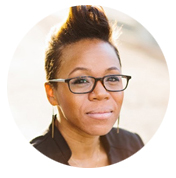 Julia E. Torres is a veteran language arts teacher and librarian in Denver, Colorado. Julia serves teachers around the country by facilitating teacher development workshops rooted in the areas of culturally responsive teaching, anti-racist educational practices, equity and access in librarianship, and education as a practice of liberation. She facilitates reading and writing workshops with students locally and around the country with the goal of empowering them to use literacy to fuel resistance and positive social transformation. Julia serves on several local and national boards and committees promoting educational equity and progressivism. She is the current NCTE Secondary Representative-at-large, a Heinemann Fellow and an Educator Collaborative Book Ambassador. Teaching, aside from her family, is Julia’s greatest love. Connect with Julia on Twitter: @juliaerin80
Julia E. Torres is a veteran language arts teacher and librarian in Denver, Colorado. Julia serves teachers around the country by facilitating teacher development workshops rooted in the areas of culturally responsive teaching, anti-racist educational practices, equity and access in librarianship, and education as a practice of liberation. She facilitates reading and writing workshops with students locally and around the country with the goal of empowering them to use literacy to fuel resistance and positive social transformation. Julia serves on several local and national boards and committees promoting educational equity and progressivism. She is the current NCTE Secondary Representative-at-large, a Heinemann Fellow and an Educator Collaborative Book Ambassador. Teaching, aside from her family, is Julia’s greatest love. Connect with Julia on Twitter: @juliaerin80
Vaughn W. M. Watson
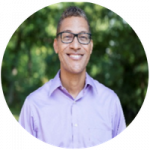 Vaughn W. M. Watson is an assistant professor of English education at Michigan State University. Previously, he taught high school English for 12 years in Fort Greene, Brooklyn, in New York City. Vaughn’s research examines how youth of color reframe changing mandates for student work, teacher practice, and civic learning and action in their creative and artistic artifacts and practices within and beyond school. Vaughn has published research findings in journals including American Educational Research Journal; Teachers College Record (in press); Review of Research in Education; Research in the Teaching of English (in press); English Journal; Urban Education; International Journal of Qualitative Studies in Education; and Literacy.
Vaughn W. M. Watson is an assistant professor of English education at Michigan State University. Previously, he taught high school English for 12 years in Fort Greene, Brooklyn, in New York City. Vaughn’s research examines how youth of color reframe changing mandates for student work, teacher practice, and civic learning and action in their creative and artistic artifacts and practices within and beyond school. Vaughn has published research findings in journals including American Educational Research Journal; Teachers College Record (in press); Review of Research in Education; Research in the Teaching of English (in press); English Journal; Urban Education; International Journal of Qualitative Studies in Education; and Literacy.
Some Position Statements from Your Committee
Student achievement and engagement are direct consequences of the level of expectations that we set as teachers, and of our ingenuity, imagination, and empathy in creating the scaffolding that will help students meet those expectations. — Joshua Cabat
Position Statement: The digital age has forever altered the field of education, requiring English teachers to learn new concepts and adjust practices while maintaining high standards. Teachers are charged with using innovative approaches to ensure all students become readers, writers, and thinkers capable of moving the world forward. It is our responsibility as an organization to support teachers, provide an avenue for their voices, and create opportunities to collaborate and improve the craft of language arts instruction. — Amanda Palmer
Position Statement: Listening, sharing, and collaborating are essential skills for educators and leaders. I have made commitments to be an engaged professional, a critical thinker, and a lifelong learner. By presenting at NCTE, by serving as a leader in my school district and two different state affiliates, and by mentoring new leaders and teachers, I learn and grow as a professional. Among my teacher research interests are writing instruction; policy and governance; rural issues; content area literacy; and LGBTQ topics. I am dedicated to promoting a collaborative vision, advocate for informed literacy policies, and suggest initiatives across all grade levels. — Tiffany Rehbein
For the past 10 years, I have had the tremendous pleasure of serving in a variety of leadership roles here at NCTE. As a member of your Secondary Section Steering Committee, I am honored to continue that service. Because the theme of this year’s Annual Convention is “Spirited Inquiry,” I summon each of us to dig a little deeper—to find the best, highest, most authentic versions of ourselves. May we meet the challenges lying before us with uncommon empathy, compassion, curiosity, joy, and hope. Above all else, be encouraged. Be resolute and tenacious in your teaching, knowing that the best is yet to come. — Skekema Silveri
I see NCTE as the primary professional voice for English teachers. There are a variety of issues in English education today, and NCTE is best positioned to approach, research, and advocate for all English teaching professionals. I intend to be a part of this important work. — Juli Stricklan
What Does Spirited Inquiry Mean to Me?
Spirited inquiry is the process of exploring objects, artifacts, experiences and texts from a wide variety of perspectives and contexts to gain as much understanding as possible. But that is only half the work; the real work comes in then connecting these elements to each other, to their respective historical contexts, to ourselves and to the world around us. It is the creation of these connections, particularly the unprecedented or unexpected ones, that is at the heart of the educational process. — Joshua Cabat
Pushing positions. Extracting information. Expressing oneself. Making new meaning. Spirited inquiry is an interaction where each committed participant leaves with a new, more nuanced, understanding of the topic at hand. Anything less is merely a contest. — Amanda Palmer
It means asking the hard questions. It means taking action. It means advocating for policy. It means making those curricular changes. — Tiffany Rehbein
Truly educated people should be open to and enthusiastic about attacking the problems and concerns of the world. “Spirited inquiry” refers to the ability and inclination to discuss, listen, and analyze issues—even when (or especially when) there is controversy or disagreement on the topic. I feel that spirited inquiry is the optimal way to approach issues in a way that is likely to result in the best possible solution. — Juli Stricklan
To take an inquiry stance means leaving doors open for discovery and co-creating a space where questions can lead to more questions, rather than close-ended or pre-determined answers. Often, we tend to “teach with the end goal in mind,” but doesn’t that imply there is, or has to be, an end goal? Doesn’t this limit, in a way, our ideas of what is possible? Though it is important to have learning goals and targets, too often we let those end destinations predetermine the course of units, lessons, entire years of academic study. Having an inquiry stance allows for limitless possibilities — to solve past and future problems, and to revisit knowledge passed down to us with a forward-facing lens. This is true educational empowerment that allows us to imagine and co-create the world we want to inhabit, rather than simply maintaining a status quo for the sake of tradition or out of habit because our predecessors have always done so. — Julia Torres
As I discuss in a 2018 High School Matters column in English Journal, taking an inquiry stance in ELA teaching and learning involves envisioning “English teaching and learning as all around us.” Inquiry, in this way, prompts the design of curriculum and teaching activities and an enacting of participatory approaches in literacy research that purposefully build on what I note as youths’ “already present” literacy practices, for example roles youth take up as teachers and learners across contexts of social media, music, or video gaming. This “purposeful situating envisions English teaching and learning as all around us” – an urgent building, across unit and lesson plans, and research inquiries, with everyday lived experiences and literacy activities of culturally and linguistically diverse youth. —Vaughn W. M. Watson

